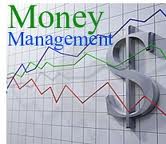BUY CANDIDATES: DON’T TRY TO PLAY THE PRO’S GAME!
 DON’T TRY TO PLAY THE PRO’S GAME: Professional stock investors (big-time hedge-fund, mutual fund, and private equity managers) are usually well-diversified over dozens of companies in several different industries. While potential returns are always a strong consideration in their evaluation processes, the accurate assessment of risk is equally important to them.
DON’T TRY TO PLAY THE PRO’S GAME: Professional stock investors (big-time hedge-fund, mutual fund, and private equity managers) are usually well-diversified over dozens of companies in several different industries. While potential returns are always a strong consideration in their evaluation processes, the accurate assessment of risk is equally important to them.
But it’s worth remembering that the professional stock investor who manages other people’s money as an occupation is really in the business of getting and keeping customers by having superior performance relative to their competition. They are also paid to maintain positions in the stock market and to spend most, if not all, of their new inflows of money on additional stock purchases. What the pros are not paid to do is hold their customers’ money in cash or cash equivalents for an extended period of time. And unfortunately for professional public investors, they have the added pressure of having to report their performance and stock positions on a regular quarterly basis.
On the other hand, individual investors are only in the business of satisfying their own needs on their own timetable. They’re not in competition for any customer money. An independent investor can learn how to buy stocks and manage risk like a professional, without having to report their actions and results to anyone outside themselves.
This means that as a savvy independent investor, you don’t have to spend most or all of your money on stocks in order to play the game. You have the option of holding large amounts of cash for any length of time, whenever the risk/reward ratio doesn’t appear attractive enough for you to invest.

 A Savvy Investing Take: The winning formula for successful investing in the stock market can be simplified into three steps: (1) confine your selections to a well-diversified list of top-performing high-quality stocks, (2) buy them when they are undervalued and under-loved by the public, and (3) sell them when they become overvalued and over-loved by the public.
A Savvy Investing Take: The winning formula for successful investing in the stock market can be simplified into three steps: (1) confine your selections to a well-diversified list of top-performing high-quality stocks, (2) buy them when they are undervalued and under-loved by the public, and (3) sell them when they become overvalued and over-loved by the public.


